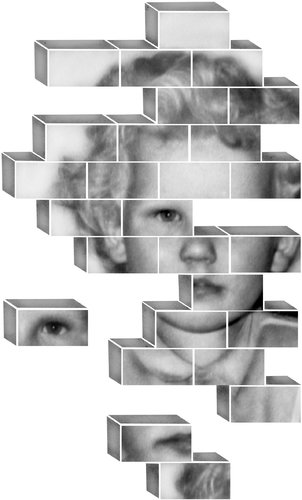BERKELEY, Calif. — AN advisory committee of the Food and Drug Administration is set to begin two days of meetings tomorrow to consider radical biological procedures that, if successful, would produce genetically modified human beings. This is a dangerous step. These techniques would change every cell in the bodies of children born as a result of their use, and these alterations would be passed down to future generations.
加利福尼亚州伯克利——食品与药品管理局(Food and Drug Administration,简称FDA)的一个顾问委员会定于明天开始一个为期两天的会议,对一种全新的生物手段加以考量,这种手段一旦成功,将产生经过基因修改的人类。这是危险的一步。这些技术将改变一个新生儿全身上下的每一个细胞,其后代也将继承这些改变。
The F.D.A. calls them mitochondrial manipulation technologies. The procedures involve removing the nuclear material either from the egg or embryo of a woman with inheritable mitochondrial disease and inserting it into a healthy egg or embryo of a donor whose own nuclear material has been discarded. Any offspring would carry genetic material from three people — the nuclear DNA of the mother and father, and the mitochondrial DNA of the donor.
FDA称之为线粒体操作技术。相关的步骤涉及将患有遗传性线粒体疾病的女性的卵子或胚胎的核质取出,嵌入到捐赠者的健康卵子或胚胎中,捐赠者本身的核质已经丢弃。所有子女都将携带三个人的基因物质,分别是父亲和母亲的核DNA以及捐赠者的线粒体DNA。

Roughly 1,000 to 4,000 children born in the United States each year will develop a mitochondrial disease, most by age 10, with symptoms that can range from mild to devastating. These diseases typically prevent mitochondria from converting food into energy and are the result of genetic abnormalities, although some cases can be caused by exposures to toxins. Disorders caused by mutations in the mitochondrial DNA are passed down from the mother.
美国每年有1000到4000名新生儿患有线粒体疾病,大多数在10岁以前发病,症状有的轻微,有的极为严重。这类疾病通常会阻止线粒体将食物转化为能量,是基因异常的结果,不过某些情况下也可能因接触毒素导致。线粒体DNA变异导致的障碍症会通过母亲传给下一代。
Developers of these modification techniques say they are a way for women with mitochondrial disease to give birth to healthy children to whom they are related genetically. Some are also promoting their use for age-related infertility. These are worthy goals. But these procedures are deeply problematic in terms of their medical risks and societal implications. Will the child be born healthy, or will the cellular disruptions created by this eggs-as-Lego-pieces approach lead to problems later on? What about subsequent generations? And how far will we go in our efforts to engineer humans?
基因修改技术的开发人员称,使用这种技术可以让患有线粒体疾病的女性生下健康的孩子,同时与孩子还有基因关联。另外一些人强调这种技术可用于与年龄相关的不孕不育。这些都是有价值的目标。但是这些手段在医疗风险和社会意义方面有着深层次的问题。生下的孩子是不是健康,或者,这种拿细胞当乐高积木的方法产生的细胞干扰是否会导致日后的问题?后代又会如何?我们在人类转基因上将要走多远?
These sorts of concerns were first voiced decades ago, well before the human genome had even been "mapped." Those were the days when our accelerating knowledge about genetics led to over-optimistic hopes for quick fixes to an array of afflictions and grandiose visions of designing genetically enhanced babies to be more intelligent, athletic, musically talented and the like.
这些都是几十年前就已经提出的担忧,而那时连对人类基因组的“绘图”都远未开始。在那个年代,遗传学的迅速发展令我们产生了过分乐观的希望,认为它可以帮我们找到治疗诸多疾病的捷径,并描画出经过基因改善的婴儿的宏伟设计蓝图,希望通过改进把孩子变得更聪明,在运动和音乐等方面更具天赋。
More recently, many scholars, scientists and policy makers have urged a different approach: We should carefully and thoughtfully apply the tools of human genetic engineering to treat medical conditions in people, but we should not use them to manipulate the genetic traits of future children. Genetic modifications of sperm, eggs and early embryos should be strictly off limits. Otherwise, we risk venturing into human experimentation and high-tech eugenics.
而近些年来,许多学者、科学家和政策制定者开始呼吁选择另一种路线:我们应该小心而周密地去运用人类基因手段治疗疾病,但我们不应该用这些手段去操控未来孩子的基因性状。精子、卵子和早期胚胎的基因修改应该受到严格限制,否则我们就可能陷入人类实验和高科技优生学的危险境地。
Unfortunately, there are now worrisome signs that opposition to inheritable genetic modifications, written into law by dozens of countries, according to our count, may be weakening. British regulators are also considering mitochondrial manipulations, and proponents there, like their counterparts in the United States, want to move quickly to clinical trials.
不幸的是,目前出现了一些令人担忧的迹象,根据我们的统计,对遗传性基因修改的抵触正在减弱——这种修改在许多国家是被法律禁止的。英国监管机构也在考虑线粒体操控技术,那里的倡导者跟在美国的同道一样,希望尽快展开临床试验。
Researchers at Oregon Health and Science University have produced five macaque monkeys using one of these techniques. Four are now adults and all five appear healthy. But we won't know for years how subsequent generations may be affected.
俄勒冈健康与科学大学(Oregon Health and Science University)的研究人员使用其中一项技术培养了五只猕猴。五只猴子目前看来都是健康的,其中四只已经成年。但我们要再等几年才能知道后代会受到什么影响。
And the O.H.S.U. researchers themselves report a difference between their experience with the macaques and their work so far on fertilized human eggs. More than half of the human zygotes — single cells formed by the merging of an egg and sperm — had abnormalities not observed in the fertilized eggs of the monkeys. "It looks like human oocytes are more sensitive," the lead researcher, Shoukhrat Mitalipov, a reproductive biologist, told Nature.
该大学的研究人员自己也在报告中提到,这次猕猴实验和他们迄今用受过精的人类卵子进行的研究是有差异的。超过一半的人类受精卵——卵子和精子结合形成的单个细胞——出现了在猴子受精卵中没有观察到的异常。“看起来人类的卵细胞更敏感,”生殖生物学家、本次研究的首席研究员舒哈拉特·米塔利波夫(Shoukhrat Mitalipov)对《自然》(Nature)杂志说。
Some media accounts about these techniques have misleadingly referred to "saving lives," as if they were aimed at people who are sick and suffering. Others have failed to note how very few women would be candidates for even considering them. And they could turn to safer and simpler alternatives. An affected woman could adopt or use in vitro fertilization with another woman's eggs. Of course, the resulting child would not be genetically related to her, but neither would the child be put at grave risk by an extreme procedure.
部分媒体在报道中误导性地称之为“救命的”技术,仿佛它们面向的是受病痛困扰的人。还有一些报道没能明确一点,要去考虑使用这些技术的女性少之又少。她们有更安全、更简单的方案可选。患病的女性可以选择领养,或使用另一名女性的卵子进行体外受精。当然,这样一来她和孩子将不存在基因上的关联,但同时也让孩子免于承担极端手段带来的可怕风险。
The F.D.A. advisory panel says that its meeting will consider only scientific aspects of mitochondrial manipulation and that any "ethical and social policy issues" are outside its scope. But those are precisely the issues that we must address. Simply being able to do something doesn't mean we should do it.
FDA顾问专家组称,此次会议对线粒体操作的思考将仅限于科学层面,任何“伦理和社会政策问题”都不在关注范畴内。然而我们需要面对的恰恰就是这些问题。具备做某件事的能力并不等于我们就应该去做它。













